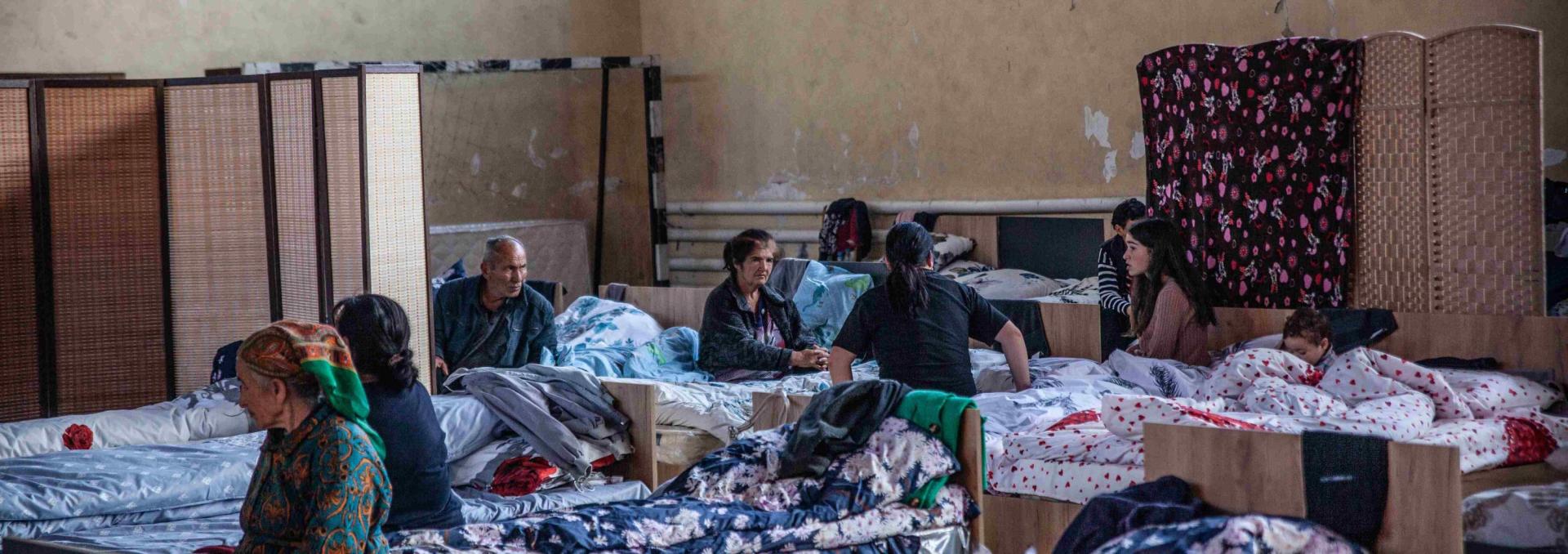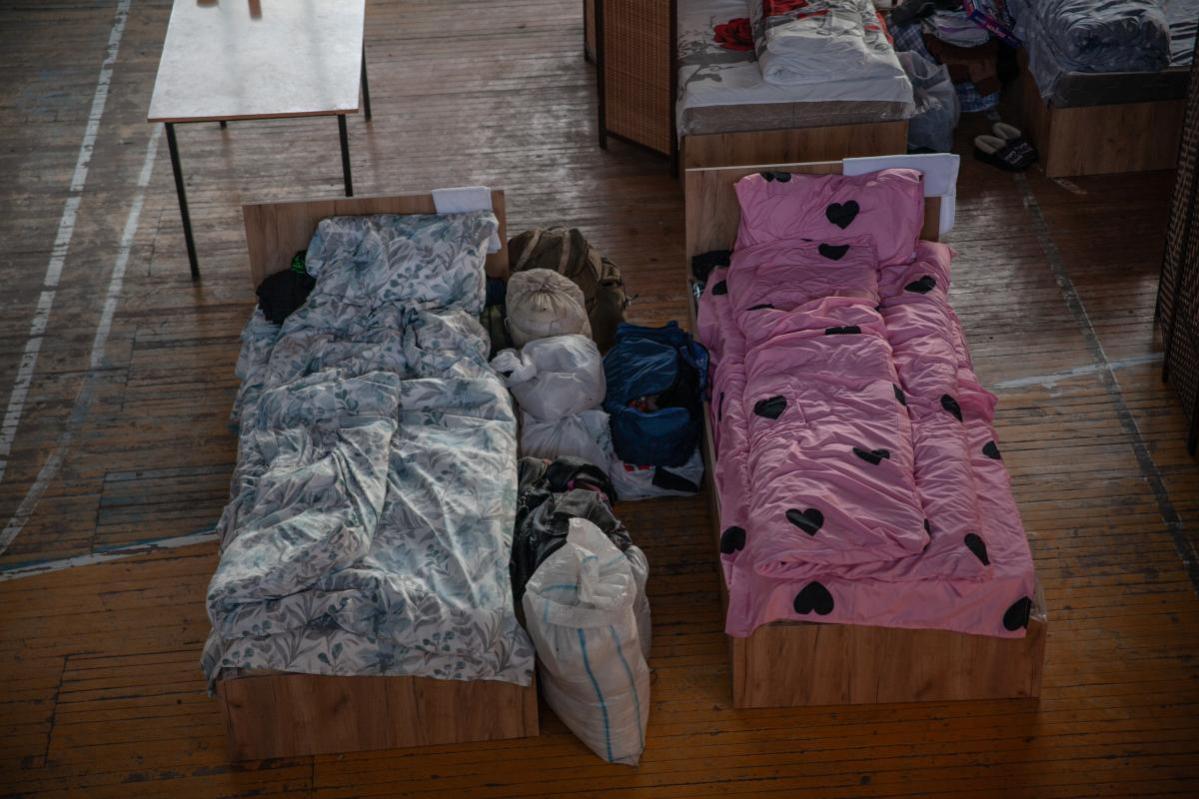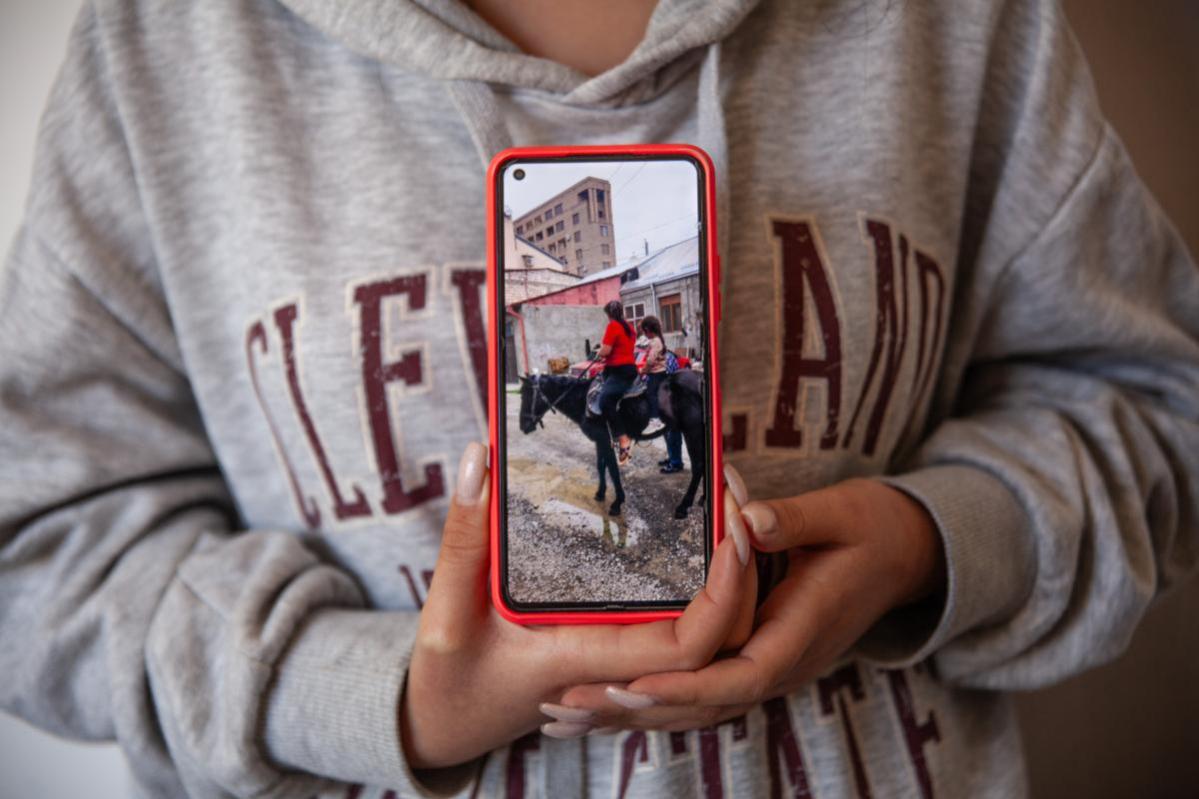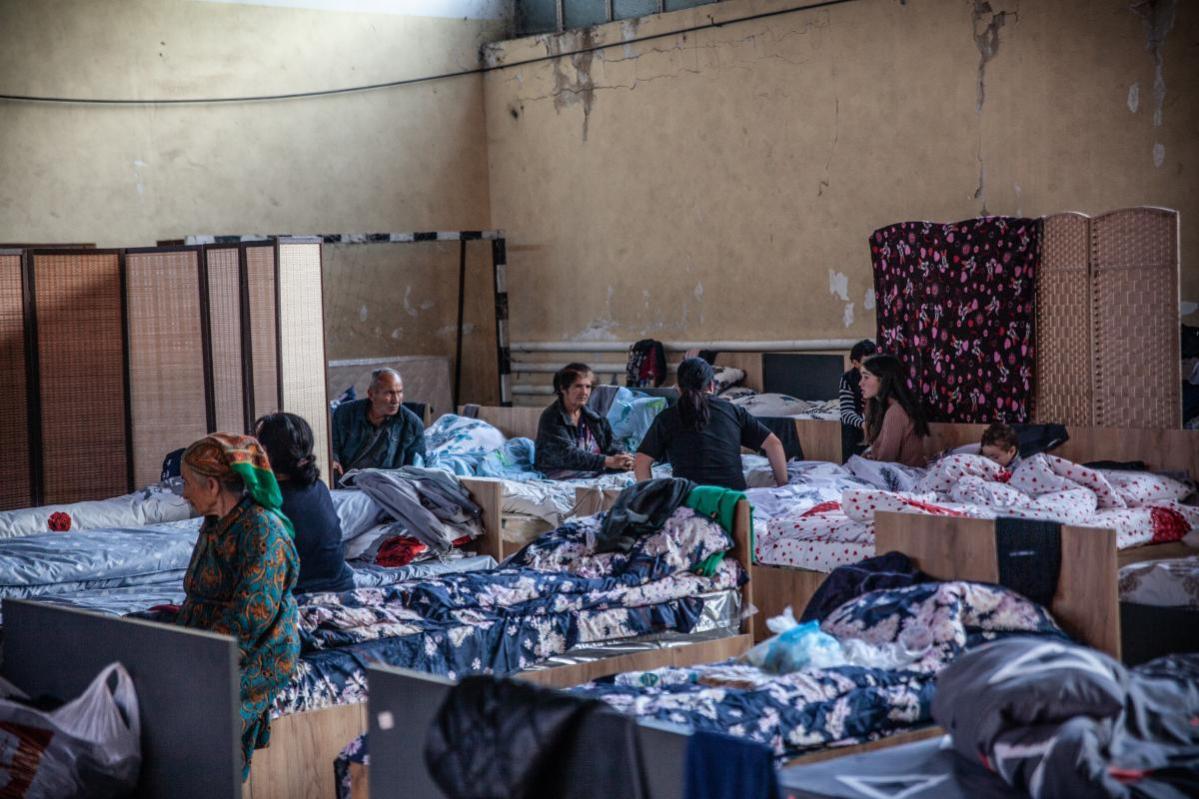

NAGORNO-KARABAKH AND TWO HUNDRED GRAMS OF BREAD
Elisa Bernal Arellano, Action Against Hunger. Yerevan
The skies are clear in Yerevan today. The sound of cars and the voices of the Vernissage flea market help its inhabitants to distance themselves, if only briefly, from a conflict that is once again ravaging the South Caucasus. More than 100,000 people – almost the entire population – of Nagorno-Karabakh fled their homes in less than two weeks after Azerbaijan launched a military offensive and the de facto authorities agreed to disband its government and armed forces.

My first contact with the refugees occurs at a registration centre in the village of Parakar. With the Action Against Hunger emergency team, we approach local authorities and the affected population to learn about their needs. There are many: they need a place to sleep and spend their days, they need access to the labour market, they need cash assistance, and they need psychosocial support.
People arrive, tired after days of travel. Health workers explain that many are malnourished, with the elderly particularly affected. Children and young people have sleep disorders after days of being locked underground in shelters. Nora – surname with-held – has a 7-year-old brother, and they left Nagorno-Karabakh together with 10 other people on the 25th of September. Her brother cannot sleep because "he is still afraid of the shelling". In a kindergarten-turned-shelter in the town of Artashat, as the team assesses the needs of the residents, the director tells us that "the children are very affected, but now they play all the time in the courtyard. They do that as they understand no bombs will fall here.”

Meanwhile, Erik (not his real name to preserve anonymity), a man in his 40s who I meet at the Parakar registration centre, needs food. During the 3 days he was on the road to escape the conflict, the 6 members of his family did not eat or drink anything. They took with them the few bottles of water they had at home. It was not only the rush that made them leave with so little. After 9 months of the blockade of the Lachin corridor, they had almost nothing left.
When humanitarian access is impeded, the consequences are very serious. Nagorno-Karabakh families like that of Erik's have had a very difficult time getting supplies during the blockade: "We received 200 grams of bread a day and had to wait at least three hours in line. That was if the bakery was open. Access to health services was also very difficult, due to lack of fuel we had to walk 40 kilometres to get to the nearest hospital.”
Armed conflict, violence and insecurity erode food security and nutrition in multiple ways. People who were already malnourished as a result of months under a blockade and the obstruction of humanitarian aid, are now facing further deprivation after losing their homes and livelihoods. People who, due to lack of financial resources, cannot afford to stay in an expensive city like Yerevan and who cannot meet their most basic needs.
Action Against Hunger has been working in the South Caucasus since 1994 and has responded to every crisis in the region.

